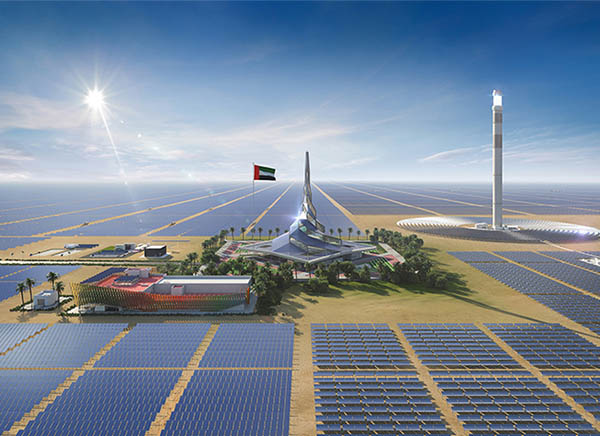
Saeed Mohammed Al Tayer, MD&CEO of Dubai Electricity and Water Authority (DEWA), inaugurated DEWA’s Ground Station at the Research and Development (R&D) Centre in the Mohammed bin Rashid Al Maktoum Solar Park. The independent ground station, which is part of DEWA’s Space-D programme, is capable of tracking and communicating with DEWA’s satellites at their low Earth orbit of 400-700 kilometres.
Waleed Bin Salman, Executive Vice President of Business Development and Excellence at DEWA; Dr Ali Rashid Al Aleeli, Vice President of R&D, Business Development and Excellence at DEWA, attended the inauguration along with the R&D Centre’s staff.
Al Tayer appreciated the R&D Centre researchers’ efforts in creating and constructing the ground station. He applauded their accomplishments in creating cutting-edge technology and creating Internet of Things (IoT) solutions for the satellites. Al Tayer emphasised the part played by researchers in the creation of specialised systems for the generation, transmission, and distribution of electricity and water as well as in improving the administration of the networks for the transmission and distribution of both.
Al Tayer said “Through the Space-D programme, launched by His Highness Sheikh Mohammed bin Rashid Al Maktoum, Vice President, Prime Minister and Ruler of Dubai in January 2021, we aim to make nano satellites a complementing technology to the ground IoT communications network. This will support the digitisation of the power and water networks and enhance the planning, operations, and preventative maintenance for the generation, distribution, and transmission divisions as well as the smart grids and the electric vehicle charging stations. This will also cut costs, improve investment in DEWA’s assets, share knowledge and experience, as well as train DEWA’s Emirati staff. During Q1 of 2023, we plan to launch a 6U nanosatellite with customised high-resolution image sensing technology specifically designed for DEWA’s use cases.”
The centre made the satellite LoRa IoT terminals to be able of communicating using Infra-X LoRa terrestrial as well as LoRa Space-D satellite communication networks. Created to be a new type of wireless protocol made for long-range, low-power communication which will enlarge the coverage of the existing terrestrial network.
Once the satellites are operational, remote asset data can be collected at a much lower cost and in a much faster time compared to expanding the coverage of the terrestrial network, especially in areas with rough terrains, such as mountains, forests or deserts. The accuracy of weather forecasting can be improved as well as climate factors including irradiance, dust and cloud movement. The use cases of the ground station will include monitoring of water salinity, water temperature, water quality, and fog detection and forecasting at the Jebel Ali Power Plant and Water Desalination Complex.
In addition to lowering costs, strengthening investment and management of its assets, and providing proactive network assistance, DEWA’s Space-D programme has helped to improve DEWA’s resilience and agility in monitoring and controlling electricity and water networks.
The programme’s goal is to up the capacity of DEWA’s employees and prepare Emiratis ready who specialise in using space technologies in electricity and water networks. It leverages the fourth Industrial revolution technologies to exchange information with the help of satellite communications and earth observation technologies. It also enhances the performance and efficiency of the photovoltaic solar panels at the Mohammed bin Rashid Al Maktoum Solar Park, the largest single-site solar park in the world.
DEWA is the first utility in the world to use nanosatellites to improve operations, maintenance and planning of electricity and water networks. Launching the 3U nanosatellite has enabled the R&D team to gain the latest knowledge and experience to understand the effectiveness and value of the IoT nanosatellite constellation in supporting utilities such as DEWA to improve the management of their power grid and water transmission and distribution networks.
DEWA is utilising IoT, data analytics, AI, and blockchain technologies from the Fourth Industrial Revolution to provide value from the data obtained from our IoT terminals via the satellite constellation network. DEWA makes use of an Internet of Things (IoT) platform that is hosted by its data centre and is run by Data Hub Integrated Solutions (Moro), the foundation of Digital DEWA.
